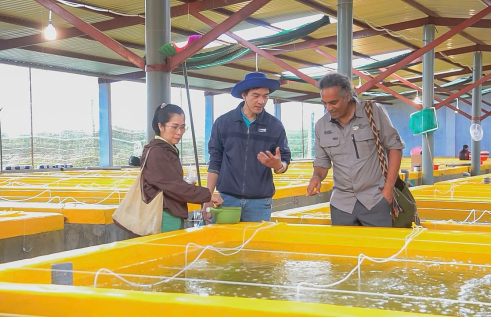News Article
Research reveals key drivers for migration south
With the build-up on the way, new research has found that along with the tyranny of distance and high living costs, heat is one of the key drivers moving people from the tropics to Australia’s cooler southern states.
The research published in Sustainable Cities and Society is a joint study by Charles Darwin University academics Professor Stephen Garnett and Dr Kerstin Zander, and links climate change to migration.
“Cities in tropical regions, already hot, will experience more days of extreme heat as the climate changes,” said Dr Zander from CDU’s Northern Institute.
“While many people adapt to heat, some find high temperatures unbearable, particularly if coupled with high humidity. One adaptation strategy is to move to cooler regions, but empirical evidence for this happening is lacking.”
The researchers conducted a survey in Darwin, Australia, finding that, while “job opportunities down south”, “moving closer to family and friends”, and the “high cost of living”, topped the list of reasons for young people to migrate south; heat and humidity were more important for older age groups.
“We found a strong age-effect,” Dr Zander said. “For young people, economic and social factors dominated migration decisions, with employment the most important.
“Heat became more important than employment as a reason to migrate for people 50 years and older, and was the most important reason to leave in the oldest age bracket (> 69 years).”
The aim of the study was to assess the extent to which heat influenced migration intentions of people living in the tropical city of Darwin, relative to other drivers, and the type of people most likely to leave because of heat.
With the number of very hot days (? 35 °C) in Darwin set to increase, the researchers suggested that the adoption of climate smart policies would be crucial to maintain populations in the future.
“Climate change policies need to include climate-driven migration and to be integrated into broader urban development and population growth policies,” Dr Zander said.
“With the population of some tropical cities already shrinking, further decline can be expected if these cities do not adopt climate smart policies to assist inhabitants to cope with an environment highly likely to become even hotter.”
Related Articles

Working with nature, not against it: How our economies can grow with the environment
Economic growth doesn’t have to come at a cost to the environment, and the ways in which this is possible will be on display at a global conference being held in Australia for the first time.
Read more about Working with nature, not against it: How our economies can grow with the environment
Stronger together: Bilby conservation efforts enhanced by Indigenous knowledge
One of the nation's most iconic and at-risk critters could benefit by combining Indigenous knowledge with western survey methods, according to a new study led by Charles Darwin University (CDU) in collaboration with the North Tanami Rangers and Traditional Owners from the community of Lajamanu.
Read more about Stronger together: Bilby conservation efforts enhanced by Indigenous knowledge
Changing the tide: New project aims to shift attitudes around fish welfare practices
Fish are often overlooked when the term “animal welfare” is used, but a new project is working to ensure happy fins are met with the same enthusiasm as cage-free eggs or grass-fed beef.
Read more about Changing the tide: New project aims to shift attitudes around fish welfare practices
